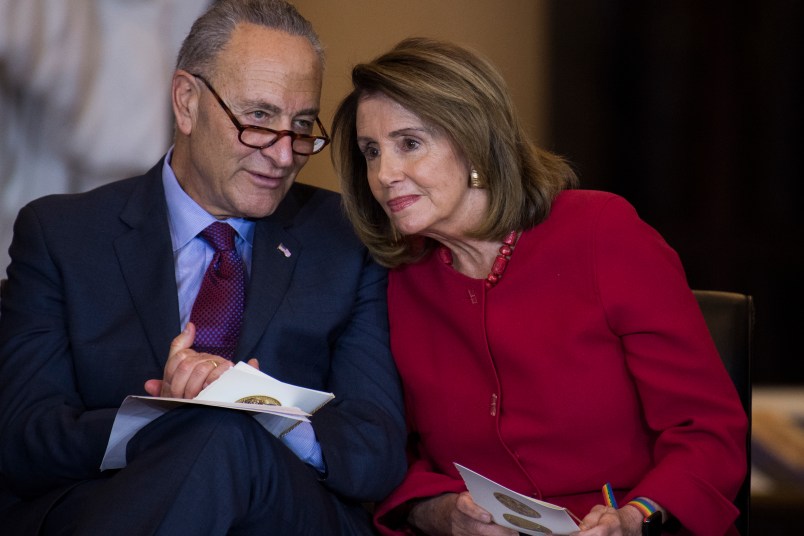There are issues that divide Republicans and Democrats that sometimes benefit the GOP and at another time the Democrats. Universal healthcare and abortion are issues like this. And so might be the issue of the border wall. If so, the Democrats should be very careful. What follows is a comment on politics, not policy.
Here’s how salience works. In 1992, the Democrats won elections on a promise of national health insurance. In 1994, the Republicans won partly by running against the actual Democratic plan. The same sequence of events occurred in 2008 and 2010. And in 2018, the issue of Affordable Care Act turned against the Republicans when large numbers of people suddenly feared losing their coverage because of Republican attempts at repeal. Abortion helped the GOP in 1980 and hurt it in 1990 and 1992 after Webster v. Reproductive Health Services raised the specter of losing the right to abortion.
The issue of the border wall probably helped Donald Trump in 2016. It energized Republican and some swing voters. The voters who hated the idea would not have voted for Trump anyway. A ball park estimate: about 20 percent of the voters love the idea of the wall; about 20 percent really hate it; and the rest are sort in between. When Trump based the shutdown on funding for the wall, he alienated many of the in-betweens. It was a bad move.
But as the weeks pass, the winds of salience can shift, and the in-betweens can began asking, “Is it really worth shutting down the government to block Trump from getting his wall?” The shutdown itself is costing way more than $5 billion. And the wall — as the public is learning, is not a real wall anyway and might never get built.
Compare the Clinton-Gingrich shutdown battle in the fall of 1995. Bill Clinton refused to sign a budget championed by Republican Speaker Newt Gingrich that would have reduced taxes on the wealthy and raised Medicare premiums by almost the same amount. From the public’s standpoint, the cost-benefit calculation was clearly on Clinton’s side, and he won the battle.
But if the battle now is seen as opening the government vs. paying $5 billion for the wall, and if the Democrats appear utterly intransigent on the issue, and indifferent to border security, Trump could win the political battle. That’s something the Democrats should worry about. They are engaged in what the Italian Marxist Antonio Gramsci called a “war of position” — a slow struggle for political supremacy that will climax in the all-important November 2020 election.






